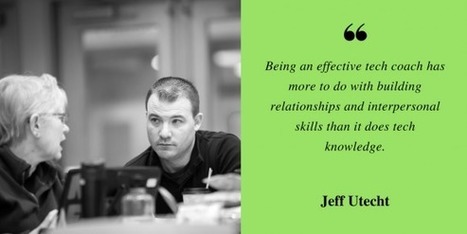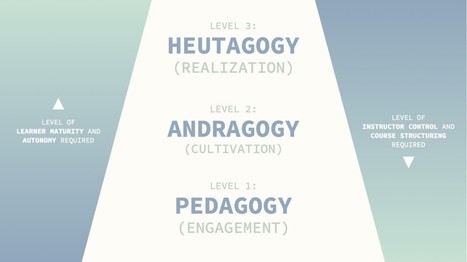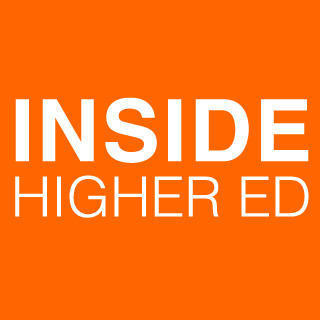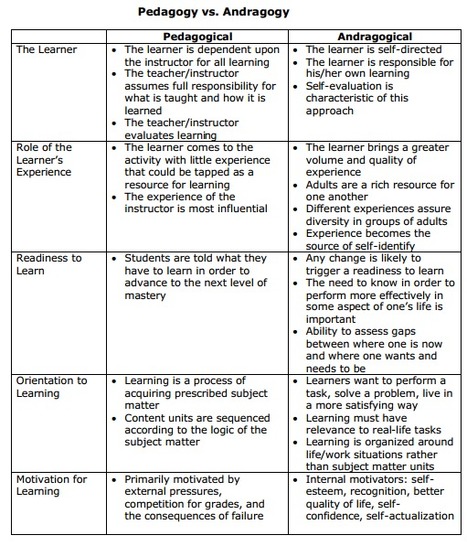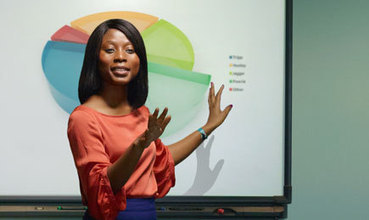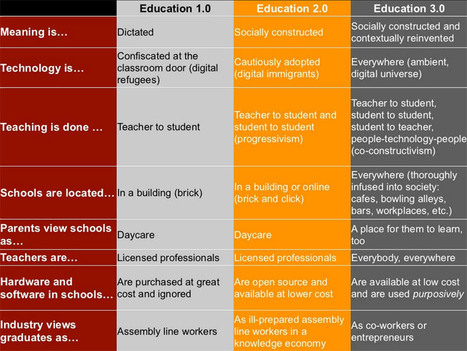A question that haunts me however, at almost any education conference that I attend is: Why are so many (not all) of these educators, who are so skilled in a classroom of kids, so bad at teaching in a room full of adults for professional development?
The obvious answer may be that children have a motivation to learn that is different from adults. I have addressed this in a previous post, Pedagogy vs. Andragogy.
According to an article, “Adult Learning Theory and Principles” from The Clinical Educator’s Resource Kit, Malcolm Knowles, an American practitioner and theorist of adult education, defined andragogy as “the art and science of helping adults learn”.
Knowles identified the six principles of adult learning as:
* Adults are internally motivated and self-directed
* Adults bring life experiences and knowledge to learning experiences
* Adults are goal oriented
* Adults are relevancy oriented
* Adults are practical
* Adult learners like to be respected
If we consider these adult motivations in terms of presenting for the purpose of professional development for educators, it is obvious that presentations should not be the conventional “sit and get” Power Point extravaganzas that we have come to recognize as commonplace at education conference sessions. It would also rule out those very inspirational TED Talks as real tools for adult learning.
An adult will get a great deal more if he/she is part of the presentation as a conversationalist. In that way they will be respected and able to not only impart their expertise, and experiences, but also address their specific needs on the topic. This makes the session personally relevant and more self-directed. Another important part of adult learning is to be able to learn something today that can be used tomorrow.
This is not a format unfamiliar to educators. It is probably the key to the success of the Edcamp movement. All of the Edcamp sessions are guided conversations. It is also a key factor in the Education Twitter chats that happen globally around the clock. Even panel discussions would benefit by limiting the panel discussion time in favor of more audience participation for interactive involvement. This would extend, or, in some cases, create a designated question and answer portion with every panel session.
Lecture has a place in any presentation, but how much time it is given even with a glitzy Power Point Presentation should be a major concern of any presenter. The goal in professional development should never be to show how much the speaker has learned, but how much we can get the participants to learn.
Via
Miloš Bajčetić



 Your new post is loading...
Your new post is loading...




